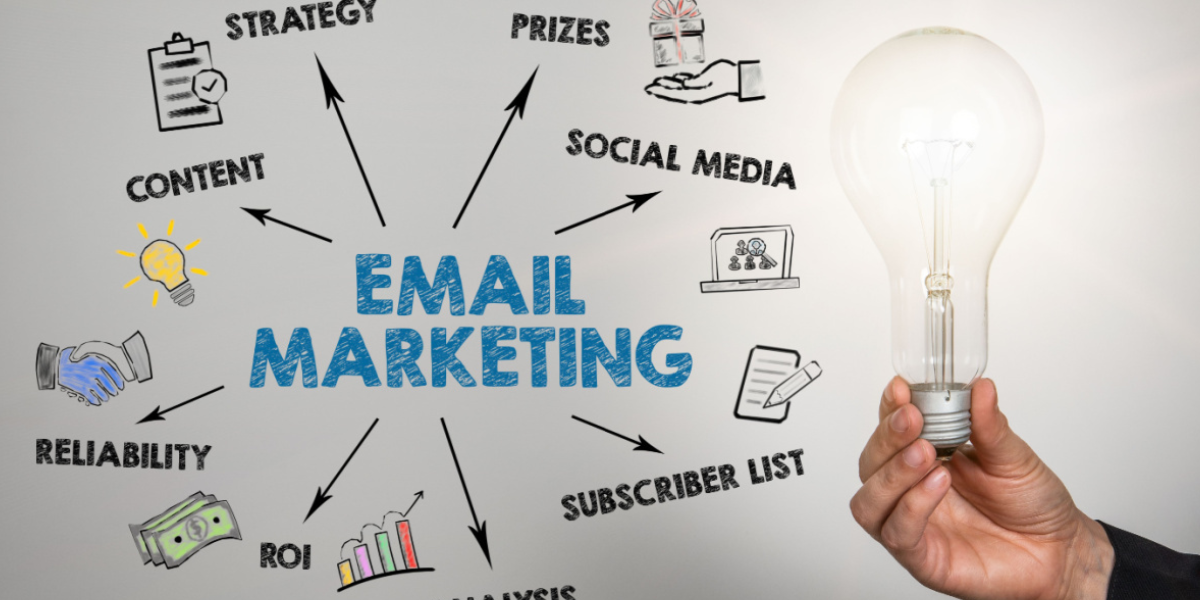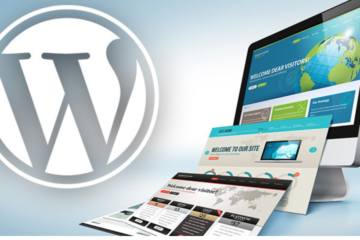In an age where social media, digital ads, and influencers dominate the marketing landscape, email marketing remains one of the most effective tools for businesses. Despite the influx of newer marketing strategies, email marketing has stood the test of time. But what exactly is email marketing, and why should it matter to your business?
Email marketing is the act of sending emails to a targeted group of recipients to promote products, services, or brand awareness. It’s an essential component of digital marketing that can help businesses communicate directly with their audience. When executed correctly, email marketing builds relationships, drives conversions, and boosts ROI.
In this comprehensive guide, we’ll explore what email marketing is, why it’s crucial, and how you can leverage it to improve your business’s success.
What is the future of digital marketing in 2024
What is Email Marketing?
Email marketing involves sending targeted emails to an audience to achieve a specific objective, such as promoting products, nurturing relationships, or encouraging customer action. Unlike social media posts or paid ads, email allows businesses to communicate directly with their audience in a personalized manner.
Emails can be sent to both existing customers and potential leads, to drive conversions, improve customer retention, and increase brand awareness.
Key Elements of Email Marketing:
- Targeted Audience: Creating segments based on customer behavior, preferences, and demographics.
- Personalization: Tailoring emails to individuals with specific content based on their actions or past interactions.
- Call-to-Action (CTA): Encouraging recipients to take a specific action, such as purchasing a product, signing up for a webinar, or downloading a resource.
Why is Email Marketing Important?
Email marketing is more than just a tool for sending promotional messages. It’s a strategy that plays a pivotal role in building customer relationships, increasing sales, and enhancing brand visibility. Let’s explore why email marketing should be an essential part of your marketing strategy.
Direct Communication with Customers
Email marketing allows businesses to communicate directly with their target audience. With email, you can speak to customers in a personal tone, tailor content to their needs, and engage them with relevant offers. Unlike social media posts, which have limited reach due to algorithms, emails go straight to your audience’s inbox, where they are more likely to be seen.
Example: An online retail brand sends personalized product recommendations to customers based on their previous purchases, creating a direct line of communication that fosters engagement.
Cost-Effective and High ROI
Email marketing is one of the most cost-effective marketing strategies available today. Unlike traditional advertising or even social media campaigns, email marketing doesn’t require significant investment. The potential ROI is substantial, with studies showing an average return of $42 for every $1 spent on email marketing.
Statistic: According to the Data & Marketing Association (DMA), email marketing has an average ROI of 4,400%.
Personalization and Segmentation
Email marketing allows businesses to segment their audience based on various factors like demographics, behavior, or past interactions. This segmentation enables more personalized campaigns that resonate with each subscriber, ultimately leading to higher engagement and conversions.
Example: An eCommerce business sends a discount offer on a customer’s birthday, which can significantly increase the chances of a purchase.
Builds Brand Loyalty and Trust
Regularly sending valuable and relevant content via email helps build trust with your audience. By delivering educational content, product updates, and exclusive offers, you position your brand as a trusted resource. Over time, this nurtures customer loyalty, increasing the likelihood of repeat business.
Drives Conversions and Sales
Email marketing is particularly effective at driving conversions. Whether it’s prompting customers to make a purchase, sign up for a webinar, or download an ebook, emails are a powerful tool for guiding prospects through the sales funnel.
Example: A SaaS company might use email marketing to nurture leads by providing valuable content that leads to a product trial or subscription.
Types of Email Marketing Campaigns
There are several types of email marketing campaigns, each serving a different purpose. Understanding these can help you design effective email strategies tailored to your business goals.
Transactional Emails
Transactional emails are sent in response to a customer action, such as a purchase confirmation or password reset. They have high open rates because they are directly tied to the customer’s transaction.
Example: Order confirmation emails, shipping notifications, and receipts.
Promotional Emails
Promotional emails are designed to drive sales or promote special offers. These emails typically include discounts, product launches, or seasonal sales.
Example: A retailer might send a Black Friday sale email with exclusive discounts.
Newsletter Emails
Newsletters are regular emails that provide updates, news, and valuable content to subscribers. They help keep your audience engaged and informed about your business.
Example: A company might send a monthly newsletter with industry insights, product updates, and upcoming events.
Welcome Emails
Welcome emails are the first point of contact when a new subscriber joins your email list. These emails help establish a positive first impression and often include a special offer or valuable content.
Example: A welcome email offering a 10% discount for first-time customers.
Re-engagement Emails
Re-engagement emails are sent to inactive subscribers to reawaken their interest. These emails often include special offers or reminders about abandoned carts.
Example: An online retailer sends an email to customers who haven’t made a purchase in a while, offering a time-limited discount.
How to Build an Effective Email Marketing Strategy
Creating a successful email marketing campaign requires more than just sending emails. It’s about having a strategy in place that aligns with your business goals and engages your audience effectively. Here are the steps to building a successful email marketing strategy.
Define Your Goals
Before you start sending emails, it’s important to define clear objectives. Do you want to increase sales, drive traffic to your website, or improve customer retention? Knowing your goals will guide the entire campaign.
Build Your Email List
Your email list is the foundation of your email marketing efforts. It’s crucial to grow and maintain a healthy list by offering value through lead magnets like free guides, eBooks, or discount offers. Always ensure your subscribers have opted in to receive communications.
Tip: Use double opt-in to ensure that subscribers genuinely want to receive your emails.
Create Engaging Content
The content you send should be relevant, valuable, and compelling. Use personalization and segmentation to tailor your messages to different audience segments, and include strong CTAs to encourage action.
Segment Your Audience
Segmentation is key to email marketing success. Group your subscribers based on criteria like demographics, past purchases, and behavior to send more targeted and personalized emails.
Automate Your Campaigns
Email automation tools can help you set up automated campaigns based on user behavior, such as welcome series, abandoned cart emails, or post-purchase follow-ups. Automation ensures that your emails reach the right audience at the right time.
Email Marketing Best Practices
- Optimize for Mobile: A significant portion of emails are opened on mobile devices, so ensure your emails are mobile-friendly.
- Use Engaging Subject Lines: Craft subject lines that are attention-grabbing and concise.
- A/B Testing: Continuously test different email elements (subject lines, CTAs, content) to optimize performance.
- Clear and Concise Content: Avoid overwhelming your audience with long emails. Keep content brief and easy to digest.
- Compliance with Laws: Always comply with email regulations like GDPR and CAN-SPAM.
Measuring Success in Email Marketing
Key Performance Indicators (KPIs)
To measure the effectiveness of your email marketing campaigns, track KPIs like:
- Open rates
- Click-through rates (CTR)
- Conversion rates
- Bounce rates
- Unsubscribe rates
Common Email Marketing Mistakes to Avoid
- Sending Too Many Emails: Overloading your subscribers with emails can lead to fatigue and increased unsubscribes.
- Neglecting Mobile Optimization: Failing to optimize for mobile can result in poor engagement.
- Ignoring Personalization: Generic emails can feel impersonal, leading to lower engagement.
How to Increase Open Rates and Click-Through Rates
- Craft Compelling Subject Lines: Your subject line is the first impression of your email. Make it count.
- Segment Your List: Segment your audience based on interests, demographics, and behavior to send more targeted emails.
- Provide Value: Always ensure your emails provide something of value to the reader.
Email Marketing Tools and Platforms
There are many email marketing platforms available, each offering different features. Some popular tools include:
- Mailchimp
- Constant Contact
- GetResponse
- ConvertKit
Conclusion
Email marketing is one of the most effective ways to communicate with your audience, nurture leads, and drive conversions. By implementing a solid email marketing strategy, you can build stronger relationships with your customers and boost your business growth.
Call-to-Action: Are you ready to leverage the power of email marketing for your business? Get started today with New Zen Solutions, and let us help you design a tailored email strategy that delivers results.
How New Zen Solutions Can Help Your Business
At New Zen Solutions, we specialize in creating comprehensive email marketing strategies that help businesses engage their audience, boost sales, and achieve their goals. Whether you need help with segmentation, campaign automation, or improving open rates, our team has the expertise to enhance your efforts.




